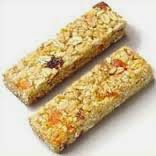Nutrition Myths vs Truths

How many times have we heard something about nutrition that we wonder, “Is that really true?”. In class I showed a video about nutrition and the nutritionist stated potato skins are healthy. Is this really true? You may have heard nuts are fattening. Is that true or a myth? So here are some myths vs truths you may have heard and the real truth. Nuts are fattening – it is is true that nuts are higher in calories than some foods. But they have recently discovered that almonds and perhaps all nuts have less calories than previously thought. USDA researchers have found that almonds provide 130 calories per ounce, not the 170 calories they thought and you may still find on nutrition labels. Why? USDA was measuring all the calories in almonds and not the calories we digest. Turns out we don’t absorb all the calories in almonds. So enjoy almonds and other nuts. A handful of nuts a day is actually a healthy habit. Nuts are very nutritious and the fat in nuts



